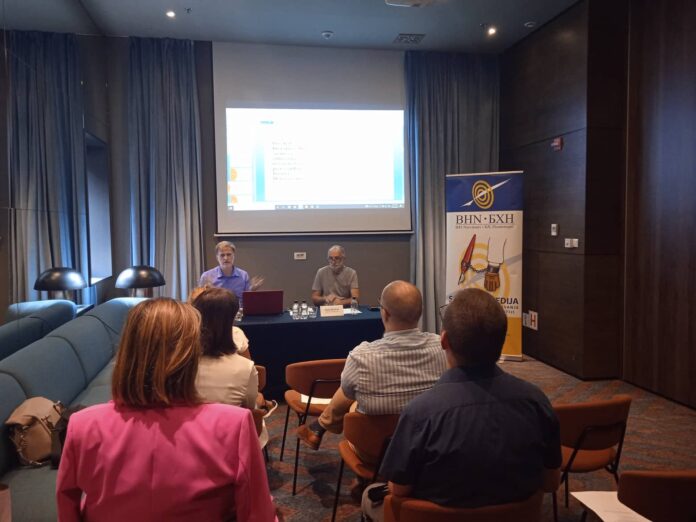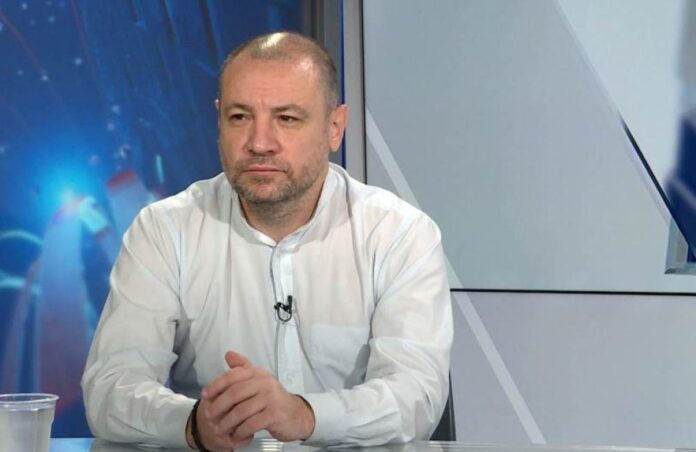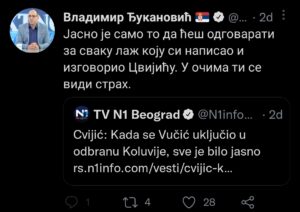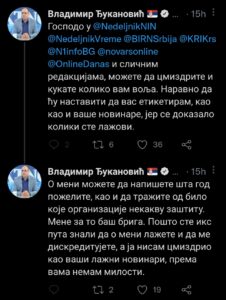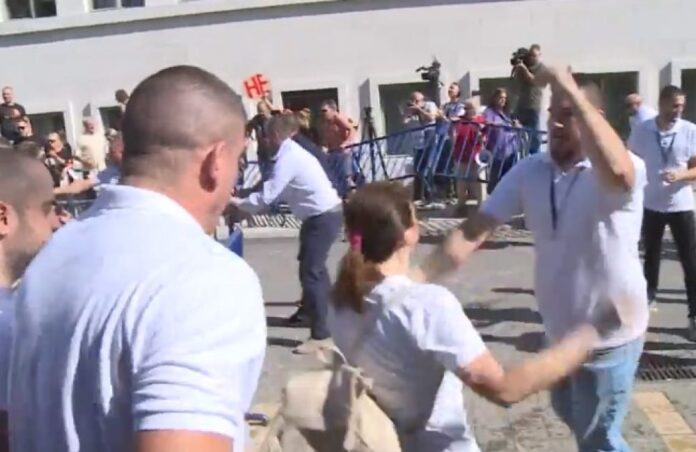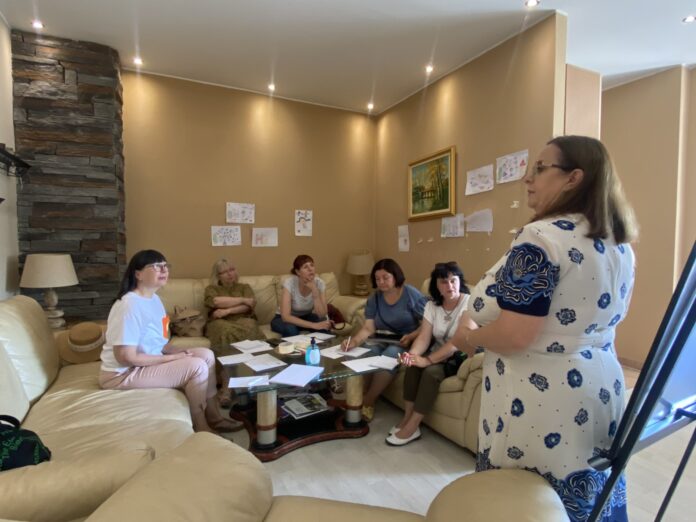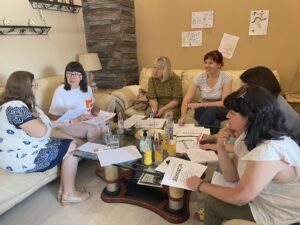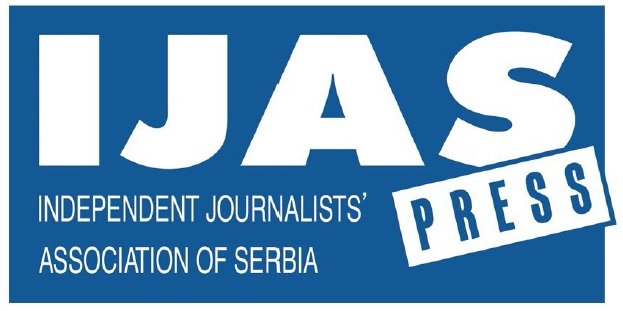Podgorica, 25.07.2022. – In Montenegro, 192 public sector bodies spent EUR 3,426,183 ,on media, media and production services last year, according to the Center for Civic Education (CGO).
From that non-governmental organization, they said that Pobjeda, Vijesti and Dan received the most from public funds for print media, from television stations Radio Television Nikšić, Television Vijesti and Radio Television Montenegro, and among radio stations Radio Tivat, Radio Kotor and Radio Antena M.
“Of the portals and agencies, Portal Analitika, Portal Vijesti and the information-agency portal Mina received the most funds, on different grounds,” according to data obtained by CGO for the purposes of reports on financial transactions from the public sector for media and media-production companies, “Equal opportunities for the media in Montenegro – 2021”.
CGO development coordinator Damir Nikocevic explained that the research into various forms of money transfers from public funds to the media, media agencies and production houses and related entities for the provision of various media services was conducted from February 23 to June 8, and included 621 public sector bodies.
Nikocevic said that the data was collected based on responses to requests for free access to information, as well as from available documents of competent authorities, for the period from January 1 to December 31 last year.
“Financing of the media from public funds is solidly regulated through the Media Act, which was contributed to by the multi-year efforts of the CGO, which has been monitoring these cash flows since 2012 and pointing out the consequences of the collapse of the media market, which is directly related to how favorable or critical media outlets report on the government’s activities,” said Nikocevic.
He said that the most money for media and related services last year was allocated by local governments – EUR 1,387,518.40, followed by public companies – EUR 1,139,791.92, while the least for these purposes was spent by the judiciary, i.e. EUR 3,646.94.
Nikocevic said that of the ministries, the Ministry of Public Administration, Digital Society and Media allocated the most money – EUR 374,823.29 (dominantly through two public tenders intended for the media), and the Ministry of Internal Affairs the least, EUR 499.12.
He said that it is interesting that the Ministry of Finance and Social Welfare, while it was headed by Milojko Spajic, advertised on Radio Television of Serbia from November 1 to 11 last year, allocating 4,950.70 euros for it. Nikocevic pointed out that it is not clear from the submitted invoices and contracts why the Ministry would advertise at the public service of another country.
He pointed out that last year money was paid to unregistered newspapers from certain public sector bodies.
“Thus, on October 5, 2021, the public company Rudnik Uglja paid the unregistered newspaper IN4S EUR 500 in one-time aid, and the Electric Power Company of Montenegro (EPCG) paid EUR 600 per month, excluding VAT, to that portal for publishing the banner from November 1, 2021,” he explained. is Nikocevic.
According to him, RTCG had planned total revenues of EUR 17,786,900 for last year, of which EUR 13,821,900 came from the budget of Montenegro.
Nikocevic said that total expenditures were projected at EUR 17,781,900, of which EUR 9,197,000 or 51.72 percent were projected for salaries.
“This is followed by the costs of the production and broadcasting of the program in more than twice the amount of 4,014,045 euros or 24.29 percent”, said Nikocevic.
He said that last year RTCG also planned marketing revenues of EUR 1,320,000, which is almost EUR 100,000 less than in 2020, or about EUR 130,000 less than in 2019.
Nikocevic said that RTCG recorded a noticeable increase in expenses in relation to salaries and a decrease in investment in the costs of production and broadcasting of programs.
“This increases the criticism of the public about the excessive number of employees in RTCG, but also a part of the employees who do not come to work and use sick leave for a long period of time,” said Nikocevic.
He stated that RTCG’s financial report for last year is not yet publicly available, it is not on the official website of the Public Service, which, he believes, indicates the worrying lack of transparency of the public broadcaster, in which the state directly invests close to 14 million euros per year.
Nikocevic said that last year print media received the following: Pobjeda – EUR 317,328.01, Vijesti – EUR 157,689.81, Dan – EUR 121,852.81, Dnevne novine – EUR 63,599.31 and Monitor – EUR 25,389.97.
According to him, the largest amount of funds for television received by the RTV Niksic – EUR 688,271.75.
“In second place in terms of income is Vijesti television, which received EUR 75,281.76 from public funds, on various grounds, followed by RTCG with EUR 44,653.93, then TV Boin with EUR 41,817.60, and RTV Pljevlja with EUR 19,666.04”, said Nikocevic.
He said that among the radio broadcasters, the biggest users of public funds were Radio Tivat with EUR 210,060.50, Radio Kotor with EUR 180,959.99, then Antena M with EUR 27,199.50, Radio Bar with EUR 3,645.25, and Radio Petnjica – Talas Bihora with a revenue of 3,440 EUR.
Nikocevic pointed out that the unequal attitude of local governments is noticeable when it comes to the transparency of payments toward local public broadcasters.
“A part of the local governments (Nikšić, Kotor and Tivat) submitted information about the allocated funds to the local public broadcasters for regular functioning, so those three municipalities dominated the review of spending for these purposes only because there is no available data for other municipalities which have large costs on this basis (e.g. Podgorica, Herceg Novi, Budva, etc.)”, said Nikocevic.
Nikocevic said that portals have a growing share in the financial transactions of public sector bodies in 2021.
“The most funds, according to different bases, were received by: Portal Analitika – EUR 38,758.26, then Portal Vijesti – EUR 27,810.42, the information and service portal of the MINA agency – EUR 23,378.67, followed by the MNE handball portal – EUR 21,415, then the CdM portal – EUR 19,782”, said Nikocevic.
He stated that Direct Media DOO – EUR 491,790.80, Archimede – EUR 69,779.20, Ninamedia Clipping – EUR 47,242.55, Media biro – EUR 37,965.35 received the most funds from public funds from marketing, media agencies and production companies, Rabbit Records – EUR 30,734.00 and Represent Communications – EUR 30,119.04.
“The two largest users of funds based on media and advertising services by legal entities and individuals who received funds for the provision of other services, which do not fall into any of the categories mentioned above, were DMS Development – EUR 46,738.02 and the public research agency opinions of DeFacto Consultancy – EUR 20,560.32”, said Nikocevic.
He pointed out that the data of the relevant Ministry, which published its report for the first time at the end of June this year, in accordance with the new legal obligation, give approximate figures.
Nikocevic said that a significant part of the data of the Ministry and the CGO match, and that the variations can be attributed to a different percentage of responses from public sector bodies.
“Given that there is a legal norm that stipulates the obligation of public sector bodies to publish on their website, by March 31 of the current year for the previous year, records of payments to the media based on advertising and other contracted services, the CGO expects the Ministry of Culture and Media takes a more decisive position in this part”, Nikocevic pointed out.
He added that it is necessary to establish a greater degree of discipline in the public sector when it comes to reporting on cash flows for the needs of the media and related media services.
“On several occasions, the granting of state aid to the media has opened up a lot of questions, so it is necessary to establish a systematized and publicly available review of state aid to the media, and the Ministry of Culture and Media, as well as the Agency for the Protection of Competition, can do the most in this direction.”
CGO, as he said, supports the initiative of the Media Directorate that public sector bodies should not advertise on unregistered media that do not respect the laws of the state of Montenegro.
Nikocevic said that, accordingly, the CGO expects quick legal changes in that direction.
“It is important to emphasize the significant progress when it comes to compliance with the Law on Free Access to Information by public administration bodies, noting that this included a great effort by the CGO research team through additional calls, emergencies and appeals,” said Nikocevic.
He said that out of 621 public sector bodies to which a request for free access to information was sent, 613 bodies, or 98.71 percent, provided answers to CGO researchers.
Nikocevic said that eight bodies are on the “black list” of non-transparent ones that, despite numerous emergencies and complaints, violated the provisions of the Law on Free Access to Information and never responded.
“These are the Ministry of Education, Science, Culture and Sports, Ministry of Health, Ministry of Agriculture, Forestry and Water Management, Revenue and Customs Administration, Airports of Montenegro, ‘Plantaze’, Aviation Association of Montenegro, Judo Association of Montenegro”, concluded Nikočević.
(Source: Agency Mina)





